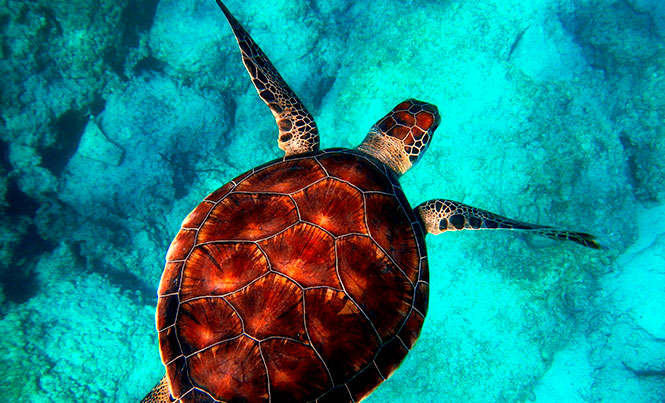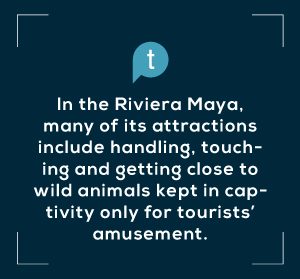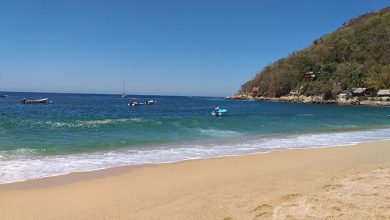Be an Environmentally Responsible Tourist on the Riviera Maya
‘Keep your distance’ is the golden rule for respecting nature, according to Marine Scientist, Florencia

There are many ways to be an environmentally responsible tourist or traveler. Tons of tips can be found online and from many conservation organizations regarding this topic. But given that I work in science for conservation, I am always trying to send some basic messages to friends, family, and whoever is keen to listen about changing habits for more environmentally conscious living. I’ve written a few articles around this topic on environmentally responsible travelling, about responsible diving, the impacts of sunscreen on corals, reducing plastics, seafood, like shark soup and lobster, teaching our younger generations about environment in summer camps and education programs for schools.
 Respecting wildlife like sea turtles, whale sharks or crabs is an issue that keeps surprising me as I travel or move around. I believe we are getting more conscious about plastic use and education as a society, but we seem to be far behind when it comes to animal rights and respect for wildlife. In the Riviera Maya, many of its attractions include handling, touching and getting close to wild animals kept in captivity only for tourists’ amusement. Why humans find amusement in seeing captive animals is something I cannot understand.
Respecting wildlife like sea turtles, whale sharks or crabs is an issue that keeps surprising me as I travel or move around. I believe we are getting more conscious about plastic use and education as a society, but we seem to be far behind when it comes to animal rights and respect for wildlife. In the Riviera Maya, many of its attractions include handling, touching and getting close to wild animals kept in captivity only for tourists’ amusement. Why humans find amusement in seeing captive animals is something I cannot understand.
Although animals in captivity is a topic of its own, there are many animals that still can be seen in the wild in the Riviera Maya, the Yucatan Peninsula, and many other parts of the world. Codes of conduct for observing wildlife in nature exist in many protected areas, hotspots of biodiversity, and areas where some animals aggregate in large enough numbers to attract attention. These codes are created to raise awareness of appropriate behavior when observing and enjoying wildlife so we lower our disturbance and impact. But let me summarize that the very first and most common thing found in all codes of conduct is keeping distance, not touching, and moving carefully around any animal, including corals (did you know that your finger touching a coral can kill them?), turtles, rays, sharks, fish, snakes, parrots, tigers.
Dear reader, I would like to call to your attention that respecting the personal space of animals (and not supporting companies that do the opposite) may be one of the best principles for environmentally conscious travelling that you could adopt.







